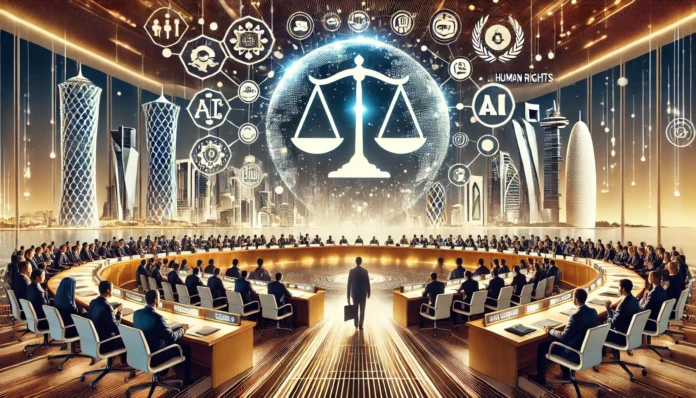The world’s spotlight is firmly on Doha this week, as the International Conference on Artificial Intelligence and Human Rights concludes its pivotal two-day summit. From May 27th to 28th, 2025, leaders, policymakers, tech experts, and human rights advocates from across the globe have converged to navigate the complex intersection of rapidly advancing AI technologies and fundamental human rights. The conference, a joint effort by the National Human Rights Committee of Qatar and various UN bodies, underscores a growing global consensus: the future of AI must be guided by robust ethical frameworks and international human rights standards.
The discussions in Doha have been far-reaching, covering a spectrum of critical themes. Central to the agenda is the urgent need to protect personal data in the digital age, a concern amplified by the pervasive data collection capabilities of modern AI systems. Experts have delved into the profound impact of AI on democratic processes, examining how algorithmic biases can influence public discourse, shape perceptions, and potentially undermine freedom of expression and access to information. The role of AI in content moderation and censorship, and the imperative to preserve free press in an AI-driven media landscape, have also been hotly debated topics.
Beyond individual freedoms, the conference has addressed broader societal implications. Discussions have focused on digital security and human rights in the context of defense and intelligence technologies, highlighting the dual-use nature of AI and the need for stringent oversight. The economic ramifications, particularly concerning AI’s transformative effect on employment, labor rights, and potential exacerbation of economic inequality, have also been a significant point of deliberation.
A key takeaway from the conference is the emphasis on developing «human rights-centered AI policies.» This includes fostering greater transparency in AI systems, establishing clear accountability mechanisms, and providing avenues for redress when AI systems cause harm. National human rights institutions are poised to play a crucial role in monitoring AI’s adherence to human rights through advocacy and capacity building, working in cooperation with international organizations.
The presence of delegations like Uzbekistan, showcasing their national experience in ethical AI regulation and digital transformation, exemplifies the global commitment to sharing best practices. As the conference concludes with the adoption of a Final Document, its recommendations are expected to serve as a vital roadmap for governments, tech companies, and civil society, ensuring that the development and deployment of artificial intelligence remain firmly rooted in human values and rights. The message from Doha is clear: AI’s immense potential must be harnessed responsibly, with human dignity at its core.




